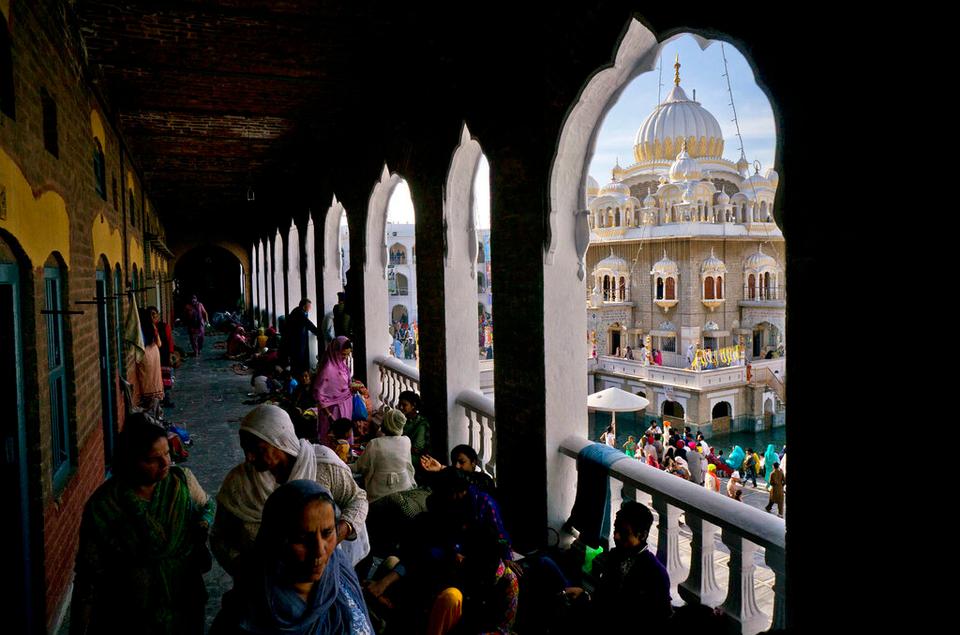New Delhi is looking into a proposal by the Pakistan Hindu Council to run flights for pilgrims.
The Covid-19 pandemic has temporarily delayed the Pakistani Hindu community’s plans to operate charter flights for pilgrims between the two South Asian rivals.
The Pakistan Hindu Council (PHC) recently proposed religious tours to shrines and temples in India, rekindling hope that the neighbouring countries can find a common ground to build relations upon.
The PHC approached New Delhi earlier this month after receiving a positive response from Islamabad.
“Indian authorities have appreciated our initiative. But they say it would be difficult to give us permission due to the pandemic,” Ramesh Kumar Vankwani, a lawmaker from the ruling Pakistan Tehreek-e-Insaf party, said on Friday.
“Of course this will help improve ties. I firmly believe that if this faith tourism is allowed to take place, it will open doors for a whole lot of things,” he told TRT World.
Relations between the nuclear armed foes are at their lowest point in years. In 2019, they came close to a full-scale war after an Indian jet was shot down during a dogfight.
They have suspended direct flights, scaled down diplomatic missions, stopped trading with each other and discouraged entertainers and athletes from travelling across the border.
Two railway lines connecting the border towns also no longer operate.
Vankwani, who heads the PHC, said he was planning to take a group of 170 people - most of them Muslims - to India on a Pakistan International Airlines (PIA) charter flight.
If the plan goes through, PIA and Air India would have operated four monthly flights to accommodate pilgrims, he said, adding that there’s a lot of demand for religious tourism on both sides.
A charter flight also opens an easy route for Indian pilgrims who want to visit temples located in the far corners of Pakistan.
Pakistan and India allow for pilgrims to travel under the Protocol on Visits to Religious Shrines of 1974. But diplomatic relations weigh heavily on the question of how many travellers receive visas.
Every year, thousands of Indian Sikhs visit the birthplace of Baba Guru Nanak in the Nankana Sahib district located in Pakistan's Punjab province.
Guru Nanak, the founder of Sikhism, died in 1539. His final resting place, another holy site for the Sikhs, is also located in Pakistan’s Punjab, just a few kilometers from the international border.
In 2019, the two sides opened a road connection - known as the Kartarpur Corridor - to allow visa-free travel for Sikh pilgrims.

Many Muslims from Pakistan want to visit mausoleums in India such as the dargah of Ajmer Sharif - the final resting place of the 12th-century saint Moinuddin Chishti.
“Since the partition of Pakistan and India in 1947, we haven’t thought about establishing an air link specifically to promote religious tourism. It’s about time we do that,” said Vankwani.
Officials at Pakistan’s state-run PIA have long complained that the airline loses an important source of revenue from religious tourists because of tensions between the neighbours.
Foreign carriers have eaten into PIA’s share of international traffic, making it imperative for the airline to tap into regional markets.
But while the religious sites for Sikhs are located close to the border, Indian and Pakistani Hindus have to take long detours if they want to visit the temples.
The Hinglaj Mata Mandir, one of the most sacred temples in the region, is in Pakistan’s Balochistan, and the Paramhans Mandir is in Khyber Pakhtunkhwa, which borders Afghanistan.
Not everyone is thrilled about the prospect of an air link.
Lal Chand Malhi, a Hindu lawmaker from the Umerkot district in the southern Sindh province of Pakistan, said Islamabad can better serve minority Hindus by opening up railway links.
Hindus make up less than three percent of Pakistan’s population of 220 million.
Airfares cost hundreds of US dollars. In contrast, a railway ticket on the Thar Express, which links the commercial hub of Karachi in Sindh with Jodhpur in the Indian state of Rajasthan, was priced at around $3 for a one-way journey.
The Thar Express was suspended in 2019 after relations deteriorated in the wake of changes India made to its constitution to strip Kashmir’s nominal autonomy.
“If I travel by road from Umerkot, I can reach Jodhpur in four to five hours,” he said.
Umerkot is the only Hindu-majority district in Pakistan.
Many Hindu families in Umerkot have relatives who live in India. Delays in receiving visas and other hurdles are having an effect on the already fragile ties, he said.
“It often happens that a girl from our area is married to a Hindu boy from India. But she cannot travel because the Indian government won’t give her the visa.”
Social media is bold.
Social media is young.
Social media raises questions.
Social media is not satisfied with an answer.
Social media looks at the big picture.
Social media is interested in every detail.
social media is curious.
Social media is free.
Social media is irreplaceable.
But never irrelevant.
Social media is you.
(With input from news agency language)
If you like this story, share it with a friend!
We are a non-profit organization. Help us financially to keep our journalism free from government and corporate pressure













0 Comments